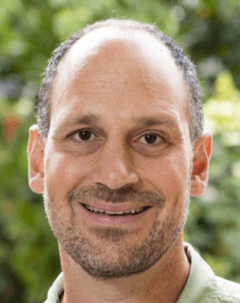Adam Krawitz

Associate teaching professor
Psychology
- Contact:
- Office: COR A251 akrawitz@uvic.ca 250-721-7551
- Credentials:
- PhD (Michigan)
- Area(s) of expertise:
- Cognition and brain sciences
- Related links:
Interests
- computational cognitive neuroscience
- working memory
- executive control
- decision making
Faculty bio
My research focuses on the mental and neural bases of working memory, executive control and decision making using the methods of computational cognitive neuroscience.
I am deeply interested in how people dynamically modify their behavior in response to ongoing events and in the service of their evolving goals. This occurs at an intermediate time scale of seconds and minutes, slower than direct reactions to stimuli, and faster than long-term learning and skill acquisition.
Consider a basketball player executing a called play, who must remember the play as she performs highly practiced skills and reacts to the opposition, or a short-order cook, who keeps in mind multiple orders while tracking how long each item needs on the grill.
These behaviors rely on a “mental operating system” to remember, update and coordinate recently perceived information to guide ongoing behaviour. To study this system, I use the converging methods of behavioural experimentation, computational modeling and functional brain imaging.
